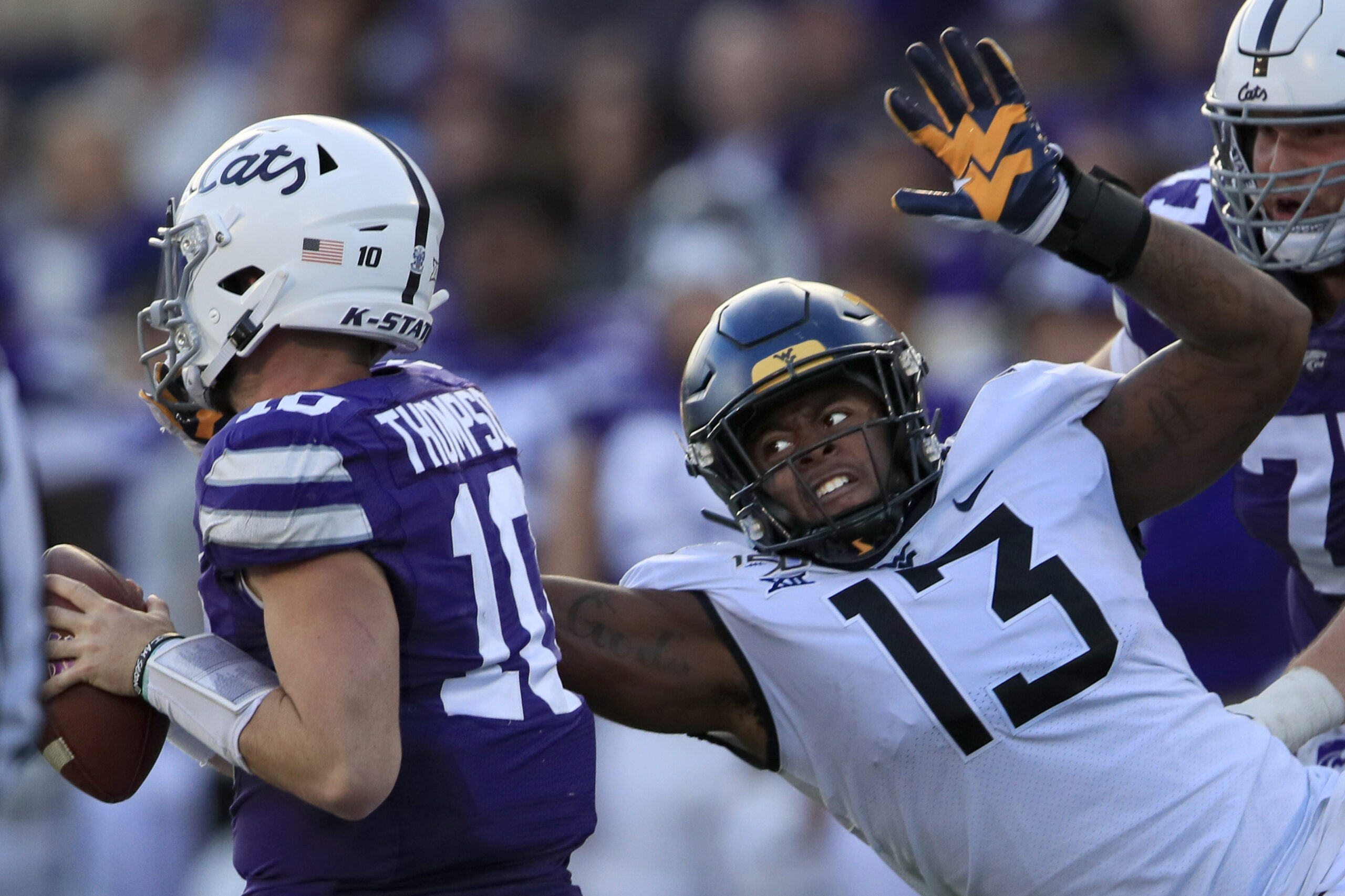Pooler will shake your hand, but may not speak to you
Little acts of amazing grace are like that. They happen, then they’re gone.
Like the time the guy stopped to help your elderly dad change a flat tire in a downpour.
Well, actually, he ended up just doing the job himself.
“Why don’t you get out of the rain, buddy?” he said. “I can get this.”
Then, he drove off before Pop got his name.
Remember the other morning in the drive-through? The person in the car in front of you paid for her order — and yours, too.
“Well, how about that?” you marveled.
Then again, you took your turn a few months ago.
That young mom with the EBT card came off eternally grateful in the checkout lane when you paid for the two items she would have had to put back.
“Don’t you worry about it,” you said. “Happy to help.
And then you disappeared, so she wouldn’t have to thank you again.
Yep, little acts of amazing grace.
Like shaking hands after a football game.
WVU’s Jeffery Pooler Jr. can tell you all about that.
The defensive end who lines up against Oklahoma State today at Milan Puskar Stadium — kickoff is at noon — always shakes hands.
He doesn’t always exchange pleasantries, however. Sometimes, he even withholds the “good game” greeting.
Why? We’ll get to that.
Emily Post (pattern)
For all its sanctioned violence, football is still a civil game.
Yes, really.
The outcry after that NFL matchup between Pittsburgh and Cleveland a couple of weeks back is a prime example.
A fight broke out, and Steelers quarterback Mason Rudolph was bashed on the head with his own helmet, which had been ripped off in the struggle.
Myles Garrett, the Brown who wielded the headgear, got an indefinite suspension as a result.
Twitter blew up.
Steelers’ fans were outraged — and everyone else who pays attention to the highlights couldn’t help but be a little squeamish, considering what happened to Rudolph during a Baltimore game last month.
A shot to the head knocked the QB cold.
Earl Thomas III, the Raven who delivered the hit in that game, was reportedly fined $21,000 by the league.
Fans are still debating if it was just an unintentional, unfortunate collision.
Two years ago, Penn State head coach James Franklin famously ran after his players to get them to shake hands following a soul-draining 27-24 loss to Michigan State.
Then there’s Pooler, the Mountaineer.
He was downright rude to Kansas State last week, netting a key sack in the fourth quarter that led to the upset win for a team that hadn’t done that in its previous five outings.
“We needed that,” he said, politely.
Soaring in Ohio
Pooler’s football career took off in the gridiron-rich state of Ohio, and the U.S. Air Force city of Dayton, which is in the same flight path as Columbus and Ohio State University.
He hung up his prep cleats after a stellar senior season at Dunbar High School, where the 6-foot-3, then-285-pound defensive tackle displayed lots of Midwest (not-so) hospitality in opposing backfields.
Pooler picked WVU over offers from Louisville, Maryland, Tennessee and Temple.
The team in Morgantown wanted him lighter and more mobile as a defensive end, so the Ohioan complied and lost 30 pounds.
He helped tame the Wildcats last week.
“It was like, ‘Somebody make a play,’ ” he said, of the rejuvenated defense. “If they don’t score, they don’t win.”
Polite — to a point
The time-immemorial good sportsmanship mantra, though, decrees that it’s not whether you win or lose, but how you play the game.
That’s what the post-game handshake is all about.
Proponents of the handshake say the overture, especially by members of the losing team, isn’t just about respect for the victor.
It’s also, they say, about respect of the very sport itself.
Others, though, have another mantra: Don’t do it, if you don’t really mean it.
After the 2013 preps athletic season in WVU head coach Neal Brown’s home state of Kentucky, the high school athletic association there put a “ban,” of sorts, on post-game handshakes.
It didn’t formally enforce the rule, but, at the same time, it decreed that schools refrain, given the sprint-levels of emotions showed by both players and their parents, even.
Especially their parents.
Too many fights, the association said, during an exchange that is supposed to exhibit good will.
Pooler, as said, always shakes hands — or at least does the shoulder pad bump.
But, as also mentioned, he doesn’t always talk.
“It depends on how they acted during the game,” he said, grinning.
After all, he said: There’s no sense knocking heads if you can’t at least be a little gentlemanly about it.




